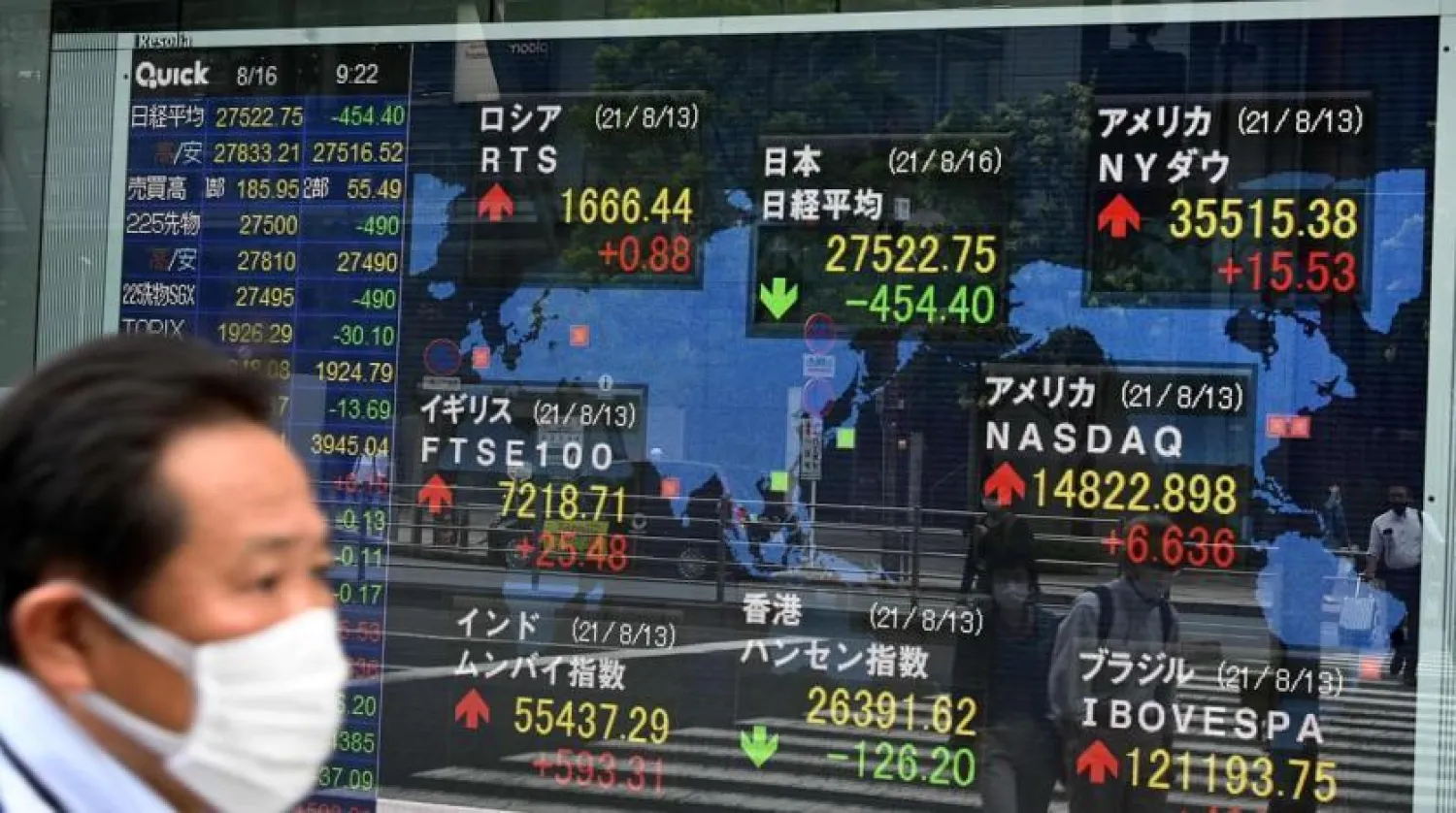Asian investors extended a sell-off across global markets Wednesday while oil held losses on growing fears Federal Reserve monetary tightening will tip the US economy into recession.
The drop followed another day deep in the red for New York's three main indexes after the heads of Wall Street's leading banks warned of tough times ahead in 2023, AFP said.
JPMorgan Chase chief Jamie Dimon tipped a "mild to hard recession" and Goldman Sachs' David Solomon said jobs and pay would be hit, while Morgan Stanley and Bank of America were also uneasy about the outlook.
The comments added to the downbeat mood that has coursed through trading floors at the start of the week, after forecast-beating reports on jobs and the giant US services sector fanned worries the Fed will have to push interest rates higher than hoped.
Markets had been rising healthily ahead of Friday's employment figures after a weaker-than-expected inflation reading for October suggested the almost year-long tightening campaign was finally affecting prices.
"Any hopes that the Fed would turn more dovish in the months ahead have been dashed significantly as the vast US services industry is where sticky inflation hangs out," said SPI Asset Management's Stephen Innes.
He added that the latest readings suggest rates will go above five percent before the Fed stops hiking, while several observers have suggested they will not be reduced until 2024.
In early trade, Tokyo, Shanghai, Sydney, Seoul, Singapore, Manila and Jakarta were all down. However, Hong Kong, which has been the standout performer in recent weeks, clipped slightly higher.
But Lauren Goodwin, at New York Life Investments, saw further pain ahead for markets.
"We have not yet seen the bottom on equity prices," she said, according to Bloomberg News. "While this phase of equity market volatility is likely to end in the next few months, earnings have not yet adapted to a recessionary environment."
The sombre outlook overshadowed hopes that China's moves to wind back some of its harsh Covid rules will kickstart the world's number two economy, which has been battered this year by months of lockdowns and other containment measures.
It also kept oil prices at lows not seen for around a year as demand expectations tumble.
Brent on Tuesday sank below $80 for the first time since January, while WTI was at its lowest since December, having plunged from the 14-year highs of around $140 touched in March after Russia invaded Ukraine. Both contracts were barely moved in Asian trade.
"The crude demand outlook is getting crushed as we are in a slowdown basically across all the major economies," said OANDA's Edward Moya.
"Supplies seem plentiful over the near term and that has everyone hesitating on what was one of the easiest trades of the year."
- Key figures around 0230 GMT -
Tokyo - Nikkei 225: DOWN 0.5 percent at 27,756.94 (break)
Hong Kong - Hang Seng Index: UP 0.5 percent at 19,529.70
Shanghai - Composite: DOWN 0.3 percent at 3,201.71
Euro/dollar: DOWN at $1.0465 from $1.0470 on Tuesday
Dollar/yen: UP at 137.11 yen from 137.04 yen
Pound/dollar: UP at $1.2135 from $1.2133
Euro/pound: DOWN at 86.24 pence from 86.26 pence
West Texas Intermediate: DOWN 0.1 percent at $74.16 per barrel
Brent North Sea crude: UP 0.2 percent at $79.48 per barrel
New York - Dow: DOWN 1.0 percent at 33,596.34 (close)
London - FTSE 100: DOWN 0.6 percent at 7,521.39 (close)









